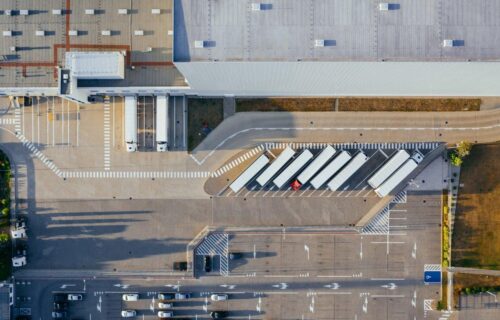The Czech industrial real estate market showed slower demand in the second quarter of 2025, with both gross and net take-up falling well below long-term averages. According to Colliers’ quarterly survey, gross demand reached 304,900 m², 34% below the five-year average, while net demand (excluding renegotiations) stood at 169,600 m², 40% below the same benchmark.
Despite weaker leasing activity, the market continued to grow, with 131,600 m² of new space delivered in the quarter. Although this represents a 32% increase year-on-year, it remains 30% under the five-year average. Since January, total stock has expanded by 344,700 m², bringing the market to 12.7 million m², equivalent to 5% year-on-year growth.
While completions were modest, construction activity is at a record level. Around 1.7 million m² is currently being built across 171 logistics parks, more than half of which is scheduled for delivery this year. Colliers notes, however, that some projects could be delayed into 2026 if demand continues to soften.
Prague and the Central Bohemian Region account for 26% of current construction, followed by Moravian-Silesian with 19% and Karlovy Vary with 18%. The latter is largely driven by a 200,000 m² automated warehouse project in Cheb, the largest of its kind in the country.
The vacancy rate increased to 4% in Q2, equivalent to 511,000 m², up 1.3 percentage points year-on-year. When including vacant space in ongoing developments, available capacity is nearly double. More than half of all space under construction—approximately 958,300 m²—remains without tenants, with many projects tailored to end-user requirements.
Tenant activity in H1 2025 was shaped by a major renegotiation in the logistics sector, which accounted for 62% of gross demand. Manufacturing represented 23%, distribution 6%, and other sectors the remaining 9%.
Prime rents remained stable at €7.00–7.50 per m² per month, the highest in Central and Eastern Europe. However, landlords are increasingly under pressure as tenant bargaining power grows, particularly in regions such as Plzeň and Moravia-Silesia, where rents are beginning to adjust downward.
Colliers points to structural issues constraining the Czech market. Lengthy permitting processes, higher labour costs, and administrative barriers are limiting competitiveness compared with neighbouring countries. These conditions are prompting some investors, particularly from the Asia-Pacific region, to redirect expansion toward markets such as Poland, Hungary, and Serbia, where incentives and operating conditions are more favourable.
“While the Czech economy is expanding, the industrial property sector is in a phase of recalibration. Demand has slowed, but the impact on rents remains limited. The development pipeline is strong, though future growth will depend on how structural challenges are addressed,” said Josef Stanko, Director of Market Research at Colliers.
Source: Colliers Czech Republic
